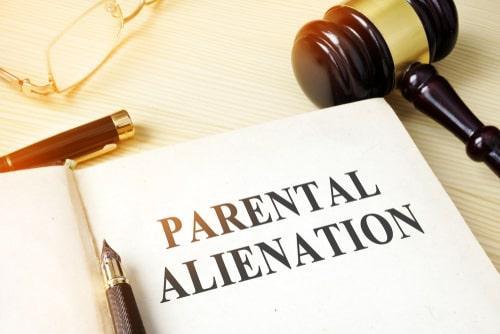Recent Blog Posts
When Are Parenting Coordinators Used in Illinois Divorce Cases?
 Divorce is a process where it can become easy to become bogged down and engulfed in negative emotions. While this makes sense, as divorce is rarely an easy process emotionally, it is important to remember for all parties going through a divorce that keeping a level head is very important, especially when children are involved in the situation. However, sometimes, the emotions of the process become too much to bear, and tempers flare. Illinois courts may appoint a parenting coordinator to help move along the custody side of things to ensure the well-being and best interests of the children in the situation. Discuss with your divorce attorney whether a parenting coordinator may be beneficial to your Illinois divorce.
Divorce is a process where it can become easy to become bogged down and engulfed in negative emotions. While this makes sense, as divorce is rarely an easy process emotionally, it is important to remember for all parties going through a divorce that keeping a level head is very important, especially when children are involved in the situation. However, sometimes, the emotions of the process become too much to bear, and tempers flare. Illinois courts may appoint a parenting coordinator to help move along the custody side of things to ensure the well-being and best interests of the children in the situation. Discuss with your divorce attorney whether a parenting coordinator may be beneficial to your Illinois divorce.
Three Most Important Functions of a Guardian ad Litem
 In the legal system, a Guardian ad Litem (GAL) plays an important role in protecting the best interests of vulnerable individuals, such as children whose parents are going through a divorce. In some instances, a GAL is appointed by the court to advocate for those who cannot advocate for themselves. If you are currently going through a custody dispute in your divorce or another family law matter involving your children, contact a qualified lawyer in Illinois to get the legal assistance you need today.
In the legal system, a Guardian ad Litem (GAL) plays an important role in protecting the best interests of vulnerable individuals, such as children whose parents are going through a divorce. In some instances, a GAL is appointed by the court to advocate for those who cannot advocate for themselves. If you are currently going through a custody dispute in your divorce or another family law matter involving your children, contact a qualified lawyer in Illinois to get the legal assistance you need today.
Top Three Duties of a GAL
-
Investigation and fact-finding – One of the primary functions of a Guardian ad Litem is to conduct thorough investigations and gather relevant facts about the case. This includes interviewing all parties involved, including the children, family members, teachers, healthcare professionals, and other key individuals. By doing so, the GAL can gain a comprehensive understanding of the situation and make informed recommendations to the court. Through their investigation, a GAL can uncover critical information that may have been overlooked or intentionally concealed. This function is crucial in cases involving child custody disputes, abuse, neglect, or any situation where the well-being of a vulnerable person is at stake. The GAL’s ability to gather accurate information and present it to the court is essential in ensuring a fair and just outcome.
Who Gets to Keep the Family Home in an Illinois Divorce?
 A couple going through a divorce needs to reach agreements about many things: Where will each spouse live? What happens to joint retirement funds? Will either need to make spousal support payments? One of the things that a couple can acquire that can be one of the most contentious things to figure out is a family home. If you are considering divorce and you and your spouse own a home together, a Schaumburg, IL divorce attorney can help you determine how to make this difficult decision.
A couple going through a divorce needs to reach agreements about many things: Where will each spouse live? What happens to joint retirement funds? Will either need to make spousal support payments? One of the things that a couple can acquire that can be one of the most contentious things to figure out is a family home. If you are considering divorce and you and your spouse own a home together, a Schaumburg, IL divorce attorney can help you determine how to make this difficult decision.
The Complications of Deciding the Future of a Family Home
What happens to the family home in a divorce can be a source of bitter dispute. One easy situation to resolve is if neither spouse wants to keep living there and the mortgage has already been paid off. In such a case, the couple can sell the house and split the money. Another relatively simple solution would be if one spouse wants to stay in the home and the other does not. In such a case, they would likely need to figure out some sort of monetary compensation for the spouse who walks away from it, but generally, both would probably be pleased with the arrangement. However, when both spouses want to stay in the home, property division can turn into a complicated issue to resolve.
Should I Consider Mediation for My Divorce?
 When a couple is first considering divorce, they may find the entire process overwhelming. There are different options for how two people can legally end their marriage, and it can be hard to figure out which is the best for you. If you and your spouse are considering divorce, mediation could be a good option. A Schaumburg, IL mediation lawyer can help explain what is involved and guide you through the process.
When a couple is first considering divorce, they may find the entire process overwhelming. There are different options for how two people can legally end their marriage, and it can be hard to figure out which is the best for you. If you and your spouse are considering divorce, mediation could be a good option. A Schaumburg, IL mediation lawyer can help explain what is involved and guide you through the process.
What Exactly Is Mediation?
In any legal dispute, the people involved can settle their arguments in court. However, they also have the option of entering alternative dispute resolution (ADR) instead. This means that they can try to settle their issues outside the courtroom. This is the case for many types of legal disputes, including divorce.
Mediation is similar to a negotiation, where the sides try to reach an agreement together with their respective lawyers. But here, there is a mediator who acts as a neutral third party helping facilitate the discussions and working toward an agreement that both sides will find acceptable.
Top Mistakes to Avoid When Filing for Divorce in Illinois
 Filing for divorce can be an emotionally difficult and complex process. It is important to avoid common mistakes that could negatively impact your divorce settlement. Here are some key mistakes to steer clear of when filing for divorce in Illinois.
Filing for divorce can be an emotionally difficult and complex process. It is important to avoid common mistakes that could negatively impact your divorce settlement. Here are some key mistakes to steer clear of when filing for divorce in Illinois.
Not Establishing Residency
In order to file for divorce in Illinois, you or your spouse must have lived in the state for at least 90 days. This is known as establishing residency. Failing to meet this residency requirement could result in your divorce petition being rejected. Be sure you or your partner have physically lived in IL for the required time period before filing.
Rushing to File the Initial Petition
It is tempting to want to hurry up and start the divorce process. However, it is wise to take your time and consult with an attorney before filing the initial petition. This ensures you understand Illinois divorce laws and how assets, debts, spousal support, and child custody may be impacted. Rushing through the initial filing can lead to mistakes.
Who Makes Important Decisions About Our Child's Upbringing After a Divorce?
 Issues concerning children during a divorce can be highly contentious. Generally, both parents want to spend as much time with their child as possible. The time a child spends with each parent is referred to as “parenting time” in Illinois. There is another type of custody as well. Formerly called “legal custody,” the allocation of parental responsibilities refers to a process in which the responsibility of making important decisions about a child’s upbringing is allocated. This may be done by mutual agreement of the parents, or it may be determined by a judge if the parents cannot reach a reasonable agreement. In the majority of cases, both parents will share some decision-making responsibility. However, there are cases where one parent is solely or primarily responsible for making decisions on behalf of the child.
Issues concerning children during a divorce can be highly contentious. Generally, both parents want to spend as much time with their child as possible. The time a child spends with each parent is referred to as “parenting time” in Illinois. There is another type of custody as well. Formerly called “legal custody,” the allocation of parental responsibilities refers to a process in which the responsibility of making important decisions about a child’s upbringing is allocated. This may be done by mutual agreement of the parents, or it may be determined by a judge if the parents cannot reach a reasonable agreement. In the majority of cases, both parents will share some decision-making responsibility. However, there are cases where one parent is solely or primarily responsible for making decisions on behalf of the child.
What Decisions Can a Parent Who Has Been Allocated Responsibilities Make?
How Are Benefits Addressed in Military Divorces?
 According to national statistics, the divorce rate among the military is almost double that of any other profession, at approximately 3.09 percent. It is even higher for female members, at more than 4.50 percent. Although any divorce can be complex, military divorce is even more so because of the types of benefits that may be involved, as well as issues with parenting time. This is why it is important to speak with a divorce attorney if you are considering ending your marriage.
According to national statistics, the divorce rate among the military is almost double that of any other profession, at approximately 3.09 percent. It is even higher for female members, at more than 4.50 percent. Although any divorce can be complex, military divorce is even more so because of the types of benefits that may be involved, as well as issues with parenting time. This is why it is important to speak with a divorce attorney if you are considering ending your marriage.
Military Benefits
Qualifying for military benefits after a divorce depends on several factors, including the length of the marriage, the duration of the military service, and specific regulations outlined by the Uniformed Services Former Spouses' Protection Act (USFSPA).
If you were married to a service member for at least 20 years overlapping with their military service, and their service includes at least 20 years of creditable service for retirement, you may be eligible for certain benefits. This is often referred to as the "20/20/20 rule" under the USFSPA. These benefits could include medical coverage through the Department of Defense (DoD) healthcare system, commissary and exchange privileges, and access to other military facilities.
Can I Stop My Ex From Moving Away With Our Child?
 Divorced and unmarried parents who share custody of their children may run into many different types of disputes throughout the years. One of the most significant issues parents run into is that of parental relocation. When one parent wants to move a significant distance away with the child, it can make it difficult to nearly impossible for the other parent to spend adequate time with the child.
Divorced and unmarried parents who share custody of their children may run into many different types of disputes throughout the years. One of the most significant issues parents run into is that of parental relocation. When one parent wants to move a significant distance away with the child, it can make it difficult to nearly impossible for the other parent to spend adequate time with the child.
If your child's other parent wants to relocate to a new residence that is a significant distance away and you are concerned about how this will impact your child, it is important to know your legal rights and options in this situation.
Parental Relocation in Illinois
To understand your rights and options regarding relocation, it is necessary to understand the difference between a move and a relocation. Illinois law describes relocations based on where an individual currently lives and the distance between the current residence and the proposed future residents.
Navigating a Divorce When One Spouse Suffers from a Serious Mental Illness
 Divorce is hard enough as it is, but it can become even more complicated if one spouse has a severe mental illness. There are many important things to consider as you begin the divorce process. If you are looking to divorce your spouse and are concerned with how their mental illness may play a role in proceedings, contact an experienced divorce attorney to ensure your rights are protected and you have access to the legal support you need.
Divorce is hard enough as it is, but it can become even more complicated if one spouse has a severe mental illness. There are many important things to consider as you begin the divorce process. If you are looking to divorce your spouse and are concerned with how their mental illness may play a role in proceedings, contact an experienced divorce attorney to ensure your rights are protected and you have access to the legal support you need.
Here is What to Keep in Mind
Keep in mind that in Illinois, mental illness is not a factor that can be considered when determining the grounds for divorce. Illinois is a "no-fault" state, which means that the grounds for divorce are irreconcilable differences. This can be a helpful factor in cases where mental illness is a factor, as it can help to remove any stigma or bias from the proceedings.
It is essential to be aware of the potential challenges that may arise during the divorce process. If your spouse has a severe mental illness, they may have difficulty understanding or participating in the divorce process. They may also struggle to make certain decisions, communicate effectively, or manage emotions. To complicate matters further, suffering from a mental illness may increase the likelihood that your spouse experiences financial difficulties, making the situation even more challenging. They may struggle to maintain employment, manage their money, or make financial decisions.
I Am Afraid My Wife is Trying to Turn My Children Against Me. As a Father, What Should I Do?
 Divorce can be a tumultuous time for any family since, at the core of a divorce, it is a permanent change in a family dynamic. Unfortunately, some parents may attempt to use their children as pawns during a divorce. One such tactic is parental alienation, where one parent tries to turn the children against the other parent. If you are a father going through a divorce and you suspect your wife is trying to alienate your children from you, it is essential to take proactive steps to protect your relationship with your children. Consult with a family law attorney to protect your rights as you move through this challenging time.
Divorce can be a tumultuous time for any family since, at the core of a divorce, it is a permanent change in a family dynamic. Unfortunately, some parents may attempt to use their children as pawns during a divorce. One such tactic is parental alienation, where one parent tries to turn the children against the other parent. If you are a father going through a divorce and you suspect your wife is trying to alienate your children from you, it is essential to take proactive steps to protect your relationship with your children. Consult with a family law attorney to protect your rights as you move through this challenging time.
Tips on What You Should Do to Counteract Your Spouse’s Attempt at Parental Alienation
Here are some considerations for what to do including:
-
Maintain open communication with your children – One of the most important things you can do to counteract parental alienation is to maintain open communication lines with your children. Stay involved in their lives, listen to their concerns, and address any negative information they may have heard about you. Reassure your children that you love them and will always be there for them, regardless of the divorce.

















